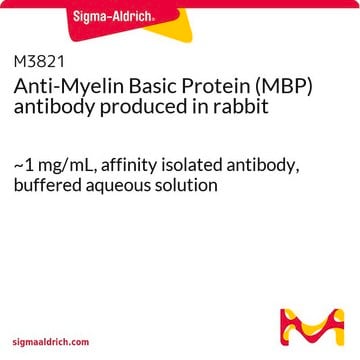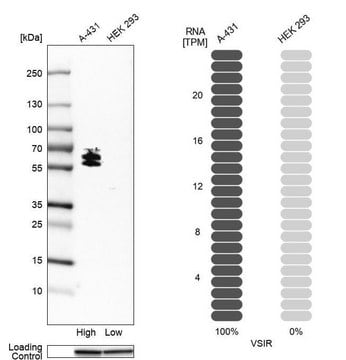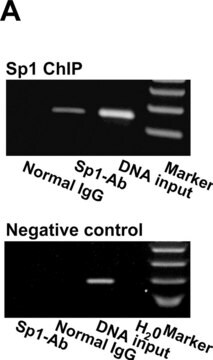05-1312-I
Anti-Ubiquityl-Histone H2B Antibody, clone 56
clone 56, from mouse
Synonym(s):
Histone H2B type 1-C/E/F/G/I, Histone H2B.1 A, Histone H2B.a, H2B/al, Histone H2B.g, H2B/g, Histone H2B.h, H2B/h, Histone H2B.k, H2B/k, Histone H2B.l, H2B/l)
About This Item
Recommended Products
biological source
mouse
Quality Level
antibody form
purified antibody
antibody product type
primary antibodies
clone
56, monoclonal
species reactivity
mouse, human, rat
packaging
antibody small pack of 25 μg
technique(s)
ChIP: suitable
western blot: suitable
isotype
IgG2aκ
NCBI accession no.
UniProt accession no.
shipped in
ambient
target post-translational modification
unmodified
Gene Information
human ... HIST1H2BC(8347)
General description
Specificity
Immunogen
Application
Epigenetics & Nuclear Function
Western Blotting Analysis: A representative lot detected Ubiquityl-Histone H2B in U2OS whole cell extract, purified histone H2A, purified H2B, and HEK293 acid extracted proteins (Courtesy of Dr. Moshe Oren, Weizmann Institute of Science).
Chromatin Immunoprecipitation (ChIP) Analysis: A representative lot detected Ubiquityl-Histone H2B in uH2B and H3K4me2 (Courtesy of Dr. Moshe Oren, Weizmann Institute of Science).
Quality
Western Blotting Analysis: 0.25 µg/mL of this antibody detected Ubiquityl-Histone H2B in 10 µg of PC-12 cell lysate.
Target description
Physical form
Storage and Stability
Other Notes
Disclaimer
Not finding the right product?
Try our Product Selector Tool.
Storage Class Code
12 - Non Combustible Liquids
WGK
WGK 1
Flash Point(F)
Not applicable
Flash Point(C)
Not applicable
Certificates of Analysis (COA)
Search for Certificates of Analysis (COA) by entering the products Lot/Batch Number. Lot and Batch Numbers can be found on a product’s label following the words ‘Lot’ or ‘Batch’.
Already Own This Product?
Find documentation for the products that you have recently purchased in the Document Library.
Our team of scientists has experience in all areas of research including Life Science, Material Science, Chemical Synthesis, Chromatography, Analytical and many others.
Contact Technical Service







